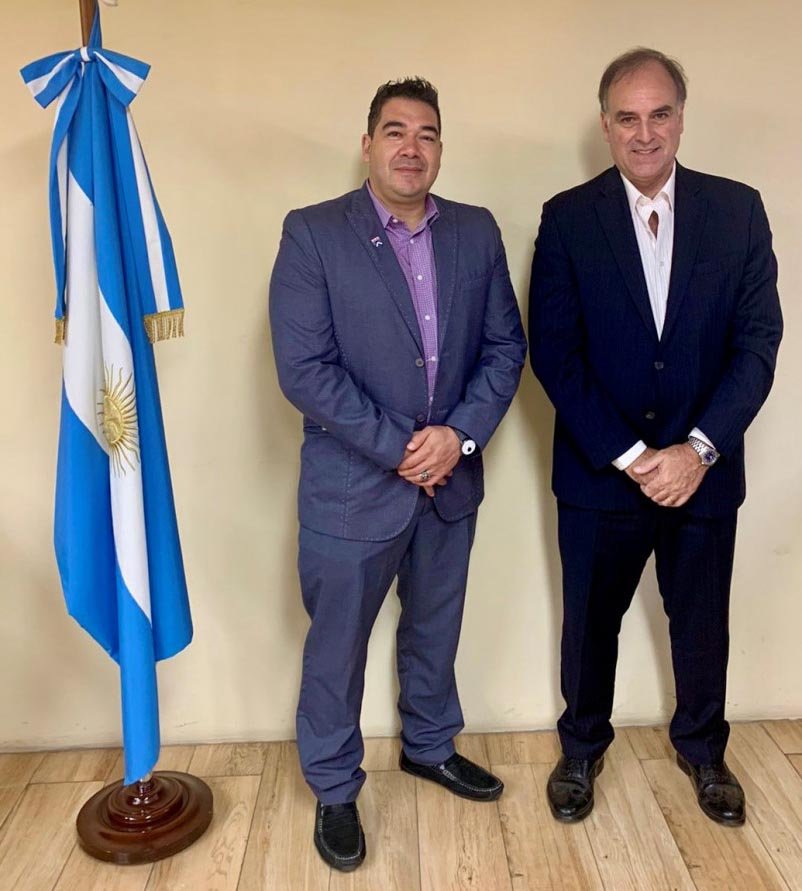In a significant move toward embracing Bitcoin, Argentina is turning to El Salvador, the pioneering nation that made history by adopting bitcoin as legal tender in 2021. This could signal an acceleration in Argentina Bitcoin adoption strategies.
High-ranking officials from Argentina’s National Securities Commission (CNV) have engaged in detailed discussions with their counterparts in El Salvador to learn from their groundbreaking experience with Bitcoin.
This collaboration marks a crucial step for Argentina as it navigates the complex landscape of Bitcoin regulation and adoption.
Argentina has been increasingly focused on integrating digital assets into its financial system, particularly in the face of severe economic challenges, including high inflation and currency depreciation.
CNV has been at the forefront of this initiative, working to develop a robust regulatory framework for Bitcoin.
In a series of meetings, CNV President Roberto Silva and Vice President Patricia Boedo met with Juan Carlos Reyes, the President of El Salvador’s National Commission for Digital Assets (CNAD).

These discussions were aimed at understanding El Salvador’s strategies and regulatory approaches to Bitcoin adoption.
The adoption of bitcoin as legal tender positioned El Salvador as a leader in the Bitcoin space. The country’s experience has provided valuable insights into the benefits and challenges of integrating Bitcoin into a national economy.
Roberto Silva of the CNV praised El Salvador’s progress, stating:
“El Salvador has emerged as one of the leading countries, not only in the use of Bitcoin but also in the broader world of crypto assets.”
El Salvador, led by President Nayib Bukele, views Bitcoin as a route to economic liberation. In October 2022, Bukele emphasized Bitcoin’s significance, remarking “El Salvador is the epicenter of Bitcoin adoption, and hence, of economic freedom, financial sovereignty, and resistance to censorship.”
Boedo highlighted the importance of building ties with El Salvador, a nation with extensive experience in the Bitcoin industry. “Argentina is a pioneer in technology, and the CNV wants to work with the industry efficiently and create appropriate regulation,” Boedo said.
He added:
“I want to highlight the experience of El Salvador when it comes to the world of crypto assets.”
Juan Carlos Reyes of CNAD expressed a similar sentiment, acknowledging Argentina’s leadership in technology and expressing a desire to work together to create effective regulations.
He stated, “We appreciate the approach with the National Digital Assets Commission of El Salvador, being an innovative supervisory authority with experience in the digital assets industry.”
Argentina’s interest in Bitcoin has been driven by its ongoing economic struggles. The country has faced triple-digit inflation rates and significant currency devaluation, prompting many Argentinians to turn to Bitcoin as a hedge against economic instability.
The CNV’s efforts to regulate the digital asset market are seen as a way to provide more security and stability for investors. In April, the CNV introduced registration requirements for digital-asset firms operating within Argentina, signaling a move toward a more structured and regulated market.
The recent election of Bitcoin-friendly politician Javier Milei as Argentina’s president has further bolstered the country’s Bitcoin ambitions.
Milei’s pro-Bitcoin stance and his plans to dollarize the Argentine economy have generated significant interest and optimism within the community. This political shift has provided a favorable environment for the CNV to pursue its regulatory goals.
Related: Milei and His Plans for the Argentine Economy
In a related development, Argentina’s foreign affairs minister, Diana Mondino, announced in late 2023 that the government was preparing a decree to legalize the use of Bitcoin and other digital assets for payments under certain conditions.
This move highlights the government’s commitment to integrating digital assets into the national economy.
The potential cooperation between Argentina and El Salvador could pave the way for significant advancements in Argentina’s approach to Bitcoin. By learning from El Salvador’s pioneering efforts, Argentina aims to create a more regulated and secure environment for digital assets.
This collaboration is expected to benefit not only the Bitcoin industry but also the broader Argentine economy by providing innovative solutions to ongoing financial challenges.
The news of Argentina’s discussions with El Salvador has been well-received by the Bitcoin community. Many see this as a positive development that could lead to more widespread adoption and acceptance of digital assets in Argentina.
The potential collaboration is also expected to enhance the regulatory framework, making it easier for businesses and individuals to operate within the Bitcoin space.
Adam Dubove, director of Ichimoku Fibonacci, expressed some concerns about Argentina’s new legislation potentially discouraging individual custody of Bitcoin and digital assets. However, he acknowledged that effective regulation is crucial for the long-term success of the industry.
As Argentina looks to the future, its partnership with El Salvador represents a significant step toward embracing the potential of Bitcoin. By learning from El Salvador’s successes and challenges, Argentina aims to create a more robust and secure environment for digital assets.
This collaboration could signal a new era for Argentina’s financial system, providing innovative solutions to economic challenges and fostering greater financial inclusion.










